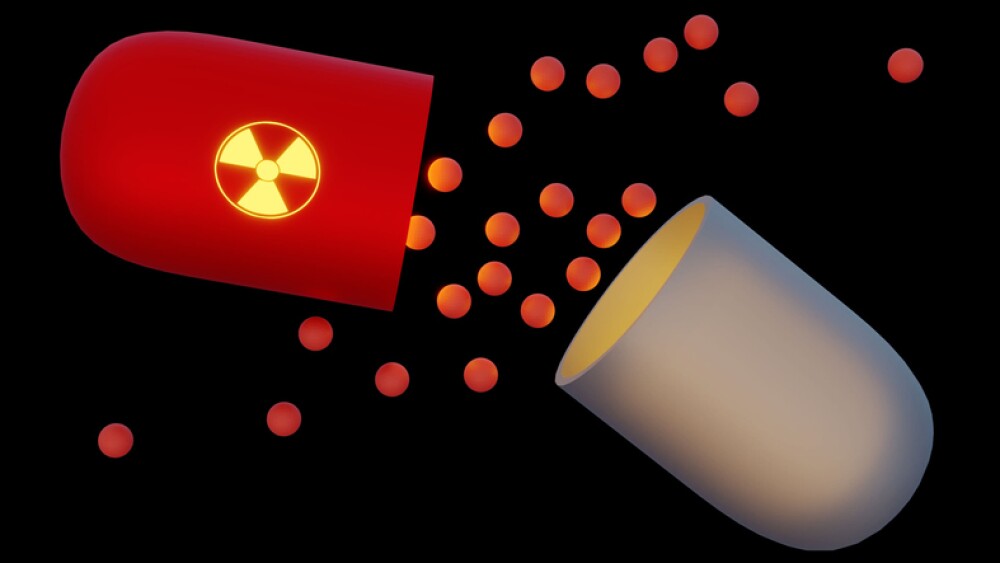KIGALI, Rwanda and WALTHAM, Mass., April 1, 2025 /PRNewswire/ -- AKAGERA Medicines, Inc. is a biotech company focused on the discovery and development of novel lipid nanoparticle formulations of antibacterial drugs and mRNA vaccines to treat tuberculosis, avian flu, RSV and other infectious diseases. The company announced today that it completed the first cohort in its first-in-human phase 1 SAD/MAD study of AKG-100, which is an oxazolidinone class of antibiotic for treatment of pulmonary tuberculosis (TB).
AKAGERA Medicines is substantially supported by the Coalition for Epidemic Preparedness Innovations (CEPI) in Norway, the Bill and Melinda Gates Foundation, the National Institute of Health (NIH) in Washington, and the European Investment Bank (EIB) in Luxembourg.
The study consists of single ascending dosing (SAD) and multiple ascending dosing (MAD) to establish the safety and pharmacokinetics of AKG-100 alone in single doses in healthy volunteers and pulmonary TB patients as well as in multiple doses in pulmonary TB patients. This study is being conducted at TASK clinical research site in Cape Town, South Africa. Approximately 100 participants will be enrolled in the study.
“The completion of the first cohort in this study is an important milestone as we progress a novel long-acting injectable and targeted treatment option for patients with pulmonary TB,” said Dr. Daryl Drummond, Chief Science Officer of AKAGERA Medicines. He added, “AKG-100 demonstrated promising preclinical data, and we believe that the addition of AKG-100 to drug-resistant TB treatment regimens will improve anti-TB activity and provide a favorable safety profile.” Less frequent IV dosing is also expected to provide flexibility and improve treatment compliance in the poorest countries in the world.
“TB is the greatest killer in human history. One out of seven people who ever lived has died from it. Nearly, two million of the poorest people in Russia, India, Africa, and China die from it every year and 400,000 of them are children,” said Michael Fairbanks, Executive Chairman of AKAGERA Medicines.
About AKG-100:
AKG-100 is a highly stabilized pegylated liposomal formulation of a novel oxazolidinone antibiotic. “Liposome-encapsulated drugs are a promising area of drug delivery research that involves the use of microscopic lipid-based vesicles to transport drugs to target cells or tissues,” said, Dr. Sachin Marulkar, the Chief Medical Officer of AKAGERA Medicines. He added, “The AKG-100 liposome encapsulated formulation enhances drug efficacy by increasing drug stability, improving drug solubility, and reducing toxicity.” AKG-100 also increases drug uptake and retention by target cells and leads to higher drug concentrations at the site of action. Liposomes protect drugs from degradation, clearance, or immune recognition, and allow for sustained drug release and longer circulation times.
About AKAGERA Medicines:
AKAGERA Medicines develops novel liposomal formulations of drugs to treat tuberculosis, and mRNA vaccines to prevent infection by RSV, influenza, avian flu, Lassa Fever, tuberculosis, and HIV.
The clinical stage company was founded in 2018 in Kigali, Rwanda. It is registered as a Delaware corporation and has laboratories in Boston and San Francisco. It is well-funded, majority-owned by the people of Rwanda through the Rwanda Social Security Board (RSSB). Akagera Medicines registered a 100%-owned subsidiary in Kigali in 2022 to do manufacturing and clinical trials.
Founding and current board members include Ambassador Dr. Albrecht Conze, Dr. Paul Farmer of Harvard Medical School, Dr. Donald Kaberuka, former Chair of the Global Fund for Malaria, HIV and Tb and past president of the African Development Bank; Dr. Eliane Ubalijoro of McGill University and CEO of CIFOR-ICRAF; UN Ambassador Valentine Rugwabiza; Philippe Watrin, the Chief Investment Officer of the RSSB; and Dr. Patrick Migambi, Rwanda’s TB specialist.
Michael Fairbanks is the executive chairman and co-founder. Dr. Daryl Drummond and Dr. Dimitri Kirpotin are co-founders who translated their successful delivery system from pancreatic cancer to infectious diseases. Dr. Sachin Marulkar is the chief medical officer and oversees the clinical development and trial activities.
About TASK Clinical Research:
TASK is a multinational, multi-site clinical research institute headquartered in Cape Town, South Africa. TASK provides clinical trial services for phase I to phase IV studies. They have completed over 100 studies with a focus on infectious diseases including TB. TASK is led by Prof. Andreas Diacon who was awarded the 2016 Scientific Prize of the International Union Against Tuberculosis and Lung Disease. He has been recognized by Gates Foundation for his contribution in the TB field.
About Tuberculosis:
TB is a social disease that undermines civilization. Despite being preventable and treatable, TB is the leading infectious disease killer and continues to be a major global health threat. TB is significantly linked to socio-economic determinants – the most vulnerable population are those living in poor and crowded conditions; those living with HIV, malnutrition, alcohol abuse, diabetes; and refugees, prisoners and the destitute. Michael Fairbanks said, “Though barely a talking point in the capitals of the west, it is a feature of our global culture, one that destroys the hopes and aspirations of millions of people in the Majority World.”
Over 95% of deaths are in poor countries. “Eight countries account for two thirds of the total with India leading in deaths, followed by China, Indonesia, the Philippines, Pakistan, Nigeria, Bangladesh and South Africa,” said Dr. Marulkar. The World Health Organization states that TB-infected mothers are “associated with a six-fold increase in perinatal deaths.” There is a large TB infection pool and together with risk factors for global ageing, slow and insufficient case detection, low cure rates and drug resistance, favors the slow incidence decline.
Moreover, political conflicts significantly slow down the decline of TB burden. Tuberculosis impacts superpower politics, north-south relations, and wildlife. An increase in tuberculosis will challenge individual country leaderships, could tear the countries apart with the concomitant problems for the global economy. Finally, TB is a direct threat to wildlife throughout the world. This is especially true of our closest animal relatives who are increasingly exposed to eco-tourists. They share the same vulnerabilities to TB as human beings.
Media Contact: Sachin Marulkar, smarulkar@akageramed.com
![]() View original content to download multimedia:https://www.prnewswire.com/news-releases/akagera-medicines-inc-announces-the-completion-of-the-first-cohort-in-the-iv-akg-100-phase-1-study-for-the-treatment-of-pulmonary-tuberculosis-302417048.html
View original content to download multimedia:https://www.prnewswire.com/news-releases/akagera-medicines-inc-announces-the-completion-of-the-first-cohort-in-the-iv-akg-100-phase-1-study-for-the-treatment-of-pulmonary-tuberculosis-302417048.html
SOURCE Akagera Medicines Inc






